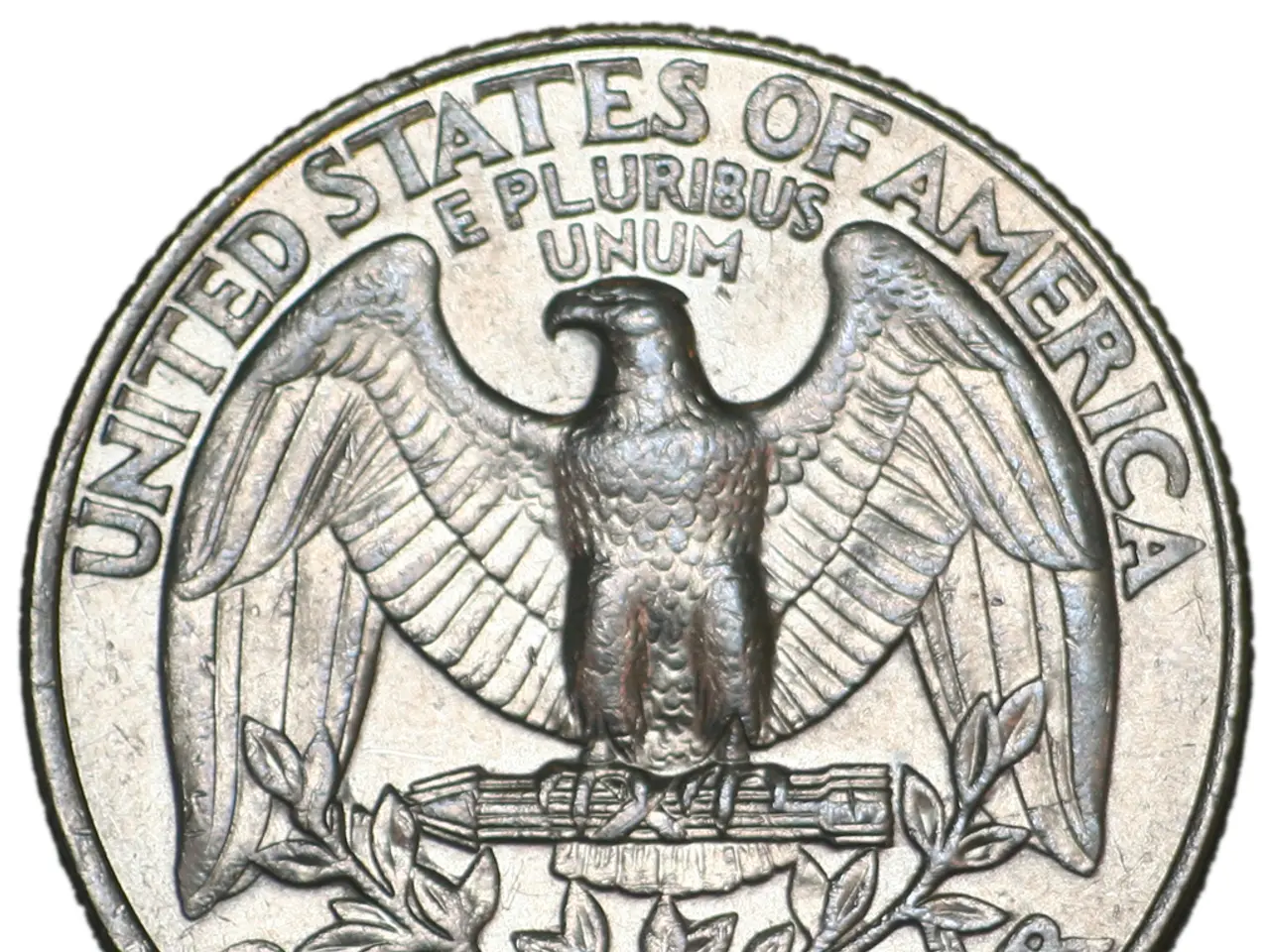Lawmakers Delve into Potential Ethical Conundrums Surrounding Donald Trump's Cryptocurrency Endeavors, Sparking Debate in the U.S. Congress
In a recent call to action, Gerald Connolly, a member of the U.S. House of Representatives, has urged for an investigation into potential conflicts of interest related to Donald Trump's cryptocurrency ventures. However, as of now, there is no active public investigation reported into these matters.
Trump's foray into the crypto world began with the launch of the TRUMP meme coin, just three days before his inauguration in 2025. The coin saw a meteoric rise, reaching an all-time high of $73.43 on January 19, but subsequently plummeted, currently trading at $36 – a 51% drop from its peak. The meme coin's astronomical $82 billion market cap fueled FOMO in the market, with whales who bought early publicly sharing their orders, stoking demand.
The highest volume of sales of TRUMP occurred on January 19, when the price ranged from $65-70. Interestingly, nearly 40% of large holders bought TRUMP for less than $15. The current status of the TRUMP meme coin, owned by Trump's organization to the tune of 80%, remains a potential profit source, despite its significant drop in market cap.
Trump's World Liberty Financial (WLFI) platform, launched by his family, has been less transparent about its ownership details. However, it has attracted major investors, including Justin Sun, the founder of Tron, who invested $75 million in WLFI tokens. Sun's purchase enabled the company to exceed its revenue threshold, allowing it to disburse funds directly to Trump and his family.
Ethics experts have raised concerns that Trump is profiting from his presidency by creating financial instruments for people to funnel money to his family tied to his office. This has led to bipartisan criticism, but no indication of a legal investigation has surfaced thus far.
Critics accuse Trump's administration of dismantling crypto oversight watchdogs and dismissing lawsuits tied to crypto fraud, creating a regulatory vacuum. As a result, Trump's crypto ventures and associates, including Justin Sun, appear to operate without imminent regulatory consequences.
Legislative attempts to regulate crypto, such as the “GENIUS Act” and “CLARITY Act,” have been stalled or diluted in Congress, partly due to Trump's lobbying efforts, further weakening the potential for official inquiries or regulatory actions into crypto concerns involving Trump.
Despite the calls for investigation and the concerns raised by ethics experts, there is currently no public or formal investigation underway into conflicts of interest or wrongdoing related to Trump's crypto ventures. This lack of scrutiny, coupled with the Trump administration's perceived favouritism towards his inner circle, has raised questions about the transparency and accountability of these ventures.
- Gerald Connolly, a U.S. House of Representatives member, has previously advocated for an investigation into potential conflicts of interest related to Donald Trump's crypto ventures, especially his TRUMP meme coin and World Liberty Financial (WLFI) platform.
- Justin Sun, the founder of Tron, invested $75 million in WLFI tokens, enabling the company to exceed its revenue threshold and disburse funds directly to Trump and his family, raising ethics concerns about Trump profiting from his presidency.
- The lack of transparency regarding Trump's crypto ventures, such as WLFI, and the Trump administration's dismissal of lawsuits tied to crypto fraud, has created a regulatory vacuum, allowing Trump's crypto ventures and associates to operate without immediate regulatory consequences.
- Legislative attempts to regulate crypto, like the “GENIUS Act” and “CLARITY Act,” have faced challenges in Congress, partly due to Trump's lobbying efforts, potentially hindering official inquiries or regulatory actions into crypto concerns involving Trump, despite calls for investigation and ethical concerns.




